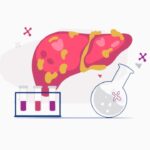You may not be aware that a deficiency in vitamin B12 can lead to a myriad of health issues, notably insomnia and headaches. Insomnia and headaches due to vitamin B12 deficiency pose a significant and often underestimated danger, which individuals cannot afford to overlook.
1. The Role of Vitamin B12
Vitamin B12 plays a crucial role in the nervous system, digestion, and cardiovascular health. Particularly, it contributes to the formation of nerve fibers, specifically Myelin. Insufficient levels of B12 can lead to diminished nerve function.
Key roles of vitamin B12 include:
– Participation in the synthesis of thymidylate, a component crucial for DNA formation, providing the necessary materials for DNA synthesis.
– Energy maintenance: Vitamin B12 is essential for converting carbohydrates from food into glucose for energy utilization by the body.
– Reducing the risk of neurodegenerative diseases and preventing memory loss.
– Improving mood and reducing depressive and anxiety disorders.
– Maintaining cardiovascular health.
– Nourishing skin, hair, and nails.
– Producing digestive enzymes necessary for metabolism and food breakdown in the stomach.
– Essential for maternal health during pregnancy.
– Along with folate, reducing the risk of certain cancers.
– Participating in red blood cell production, thereby preventing anemia.

Vitamin B12 plays a crucial role in the nervous system, digestion, and cardiovascular health
2. Why Does Vitamin B12 Deficiency Cause Insomnia and Headaches?
As mentioned earlier, vitamin B12 is crucial for nervous system function. A deficiency can lead to nervous tension, resulting in insomnia and headaches. Moreover, inadequate B12 supply can lead to fewer red blood cells necessary for oxygen transport to nourish organs and tissues. This can affect various activities and potentially lead to insomnia and headaches due to insufficient oxygen supply to the brain.
Prolonged insomnia and headaches due to vitamin B12 deficiency can harbor several dangerous health issues, including:
– Adverse effects on chronic conditions such as diabetes, stroke, lupus, etc.
– Brain tumors.
– Migraines.
– Gradual nutritional deficiency and physical weakness.
– Psychological effects such as stress and excessive tension.
For severe cases of insomnia and headaches, seeking early medical evaluation to determine the underlying cause is crucial. For cases attributed to vitamin B12 deficiency, implementing a plan to supplement the required B12 levels is necessary.

Lack of vitamin B in the body can lead to neurological symptoms including headache
3. Dietary Sources of Vitamin B12 Supplementation
The daily requirement for vitamin B12 varies, with adults typically needing around 2mcg, pregnant and lactating women requiring 2.6mcg, and infants needing about 0.7mcg. Vitamin B12 can be supplemented through daily dietary intake. Main sources of vitamin B12 include animal-based and some plant-based foods. Consider the following options to meet your body’s vitamin B12 needs:
3.1. Animal Organs
Animal organs, particularly liver from animals such as pigs, cows, sheep, and calves, are rich in vitamin B12. However, these foods should be consumed in moderation, especially by individuals who are overweight, obese, or have high cholesterol levels.

Vitamin B12 can be supplemented through daily dietary intake.
3.2. Dairy Products
Milk and dairy derivatives like yogurt, cream, cheese, etc., are rich in proteins and essential vitamins, including vitamin B12. Consuming a glass of pure milk can provide approximately 46% of the body’s daily vitamin B12 requirement. Moreover, B12 from dairy is often better absorbed than from other food sources. Opting for low-calorie options like Greek yogurt can be a healthier choice.
3.3. Fatty Fish
Fatty fish such as salmon, tuna, mackerel, sardines, trout, etc., are not only rich in omega-3 fatty acids and protein but also provide significant amounts of vitamin B12. Including fish in your daily diet can be beneficial if you’re experiencing insomnia and headaches due to vitamin B12 deficiency. For instance, a half fillet of cooked salmon (approximately 150g) contains over 200% of the daily recommended intake of vitamin B12.
3.4. Beef
Beef is a significant source of vitamin B12. Apart from B12, beef also provides ample protein, other B vitamins, and essential minerals beneficial for health. It’s recommended that individuals consume around 100g of beef or red meat 1-2 times a week. Opt for lean cuts of meat with lower fat content, which tend to have higher vitamin B12 levels.
3.5. Eggs
Eggs are an excellent source of vitamin B12. The yolk contains more vitamin B12 than the egg white. However, individuals with high cholesterol levels should consume egg whites only. It’s advisable to consult a doctor or nutritionist regarding the appropriate amount of eggs to include in your diet.
3.6. Plant-Based Sources
For vegetarians or those consuming fewer animal-based products, choosing plant-based sources of vitamin B12 is essential. Foods like fortified cereals, various nuts (walnuts, almonds, cashews, macadamia nuts, etc.), seaweed, mushrooms, etc., can provide significant amounts of vitamin B12.
Insomnia and headaches due to vitamin B12 deficiency are health issues that cannot be taken lightly. Each individual must maintain a nutritious diet and promptly supplement vitamin B12 in cases of deficiency.









